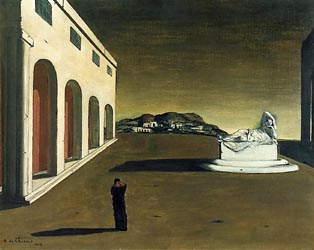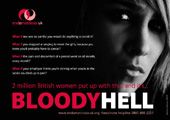| |
|

Loss of enjoyment. It sounds like nothing. An "Oh, dear" at most. For me, this is by far the worst effect of progesterone intolerance – and the most destructive. Progesterone inhibits reward responses, which give us a sense of pleasure or enjoyment. Without that, making decisions is extremely difficult (not to mention risky) and life loses its purpose. Trying to 'fix' that, without knowing what's actually wrong, can destroy one's life.
If progesterone is blunting the effects of rewards, it could spur women to engage in more pleasurable activities–such as impulse shopping–just to generate the same 'high''.Amidst the compulsion to see women as compulsive shoppers and beings whose behaviour can and should be controlled, an intensely important issue is entirely overlooked: progesterone lowers women's abilities to experience neurological rewards. When you are progesterone intolerant, this can become severe and turn into total loss of enjoyment, or "anhedonia".
The reward response is the interior "yes!" How much one relies on that interior "yes!" To know you're enjoying an evening. To know you're full. To know the caffeine's hitting the spot. To know the wine is having an effect. To know you like your friends. To know an idea's good, to know a plan is worth pursuing and should work. Meanwhile, the interior "NO", that note of warning, is unreliable: sounding more and more often, more and more loudly, ringing the bells of anxiety, guilt, fear, but could be, probably is, paranoia.
It's astonishing how little can be objectively decided, how reliant we are on that interior "yes" and "no". Perhaps it should not be so astonishing, because whether we like it or not, emotions are how we make decisions:
The limbic system forms an emotional core of the human nervous system ... The limbic brain has retained its function as the decider of valence [during the evolutionary process]. What the cortex does is provide more detailed analysis about what is going on in the world so that the limbic brain can decide what is important and what to do. (Cytowic, 1994: 157, 168)It's so strange to try function without that interior guidance, without the "yes!" and closing your ears to the constant misfiring "no", like being a computer trying to pass the Turing test, constantly needing to check in with real human beings, who have access to proper feelings, to check you're doing it right. I need it right now, writing this, to know which personal painful excerpts to include to best illustrate this ("yes") and which are too personal ("no"). And some are exceptionally painful and personal: lacking access to that "yes!" can be disastrous, because that's how we judge things are working.
The food's not working, so you have some more. The wine's not working, so you try another. The coffee's not working, so you try another. The relationship's not working, so... The degree isn't working, so... The house isn't working, so... The job isn't working, so... The natural human response, if something isn't working and is bringing you no enjoyment and no reward, is to change it – but it's working just fine. It's you that's not "working". The natural human response, if you are without enjoyment and reward, is to look for it – but it is nowhere to be found, nothing brings it, and you're not yet ready to give up on life, not quite, so you keep trying. The fruitless pursuit of pleasure can be immensely damaging.
The fact is, the food won't make you satisfied, just full. The coffee won't make you excited, just jittery. The wine won't make you happy, just drunk. The music won't swell your soul, the scenery won't lift your spirits, the hug won't make you feel loved, the evening out won't bring you fun, the joke won't make you laugh, your work won't bring you satisfaction. That sounds like a desolate list. It may be horrible to experience, but it is good to know. Nothing is actually broke, so don't fix it – don't break everything, trying to fix it.
This is easier to do when you know what you're experiencing. If you don't know nothing's broke, if you don't know you're progesterone intolerant, if you don't know your reward responses are being blocked, you think it's all real. From the age of 19 to the age of 25, that was my reality. I broke things. I remember the university coffee shop, sitting in coffee steam and cigarette smoke, trying to piece my reality together out of the fragments of everything I'd broken, trying to make sense of it and stitch my thoughts and myself back together word by word in my notebook. I was so, so unhappy then. And it breaks my heart to think it was all so unnecessary, just down to the pill, which I wasn't even taking for contraception, but because my doctor had convinced me it was keeping me stable and that without it I would be even crazier, more manic, more chaotic, instead of magically restored to my sane, calm, happy self within a month. Instead, I flailed my way through hell, a hell increasingly of my own making, breaking everything in an increasingly desperate attempt to fix it.
You see, when you're anhedonic, you can't feel anything good. Positive emotions just don't make it through. But you can feel negative emotions. And eventually, it's a relief to feel anything at all.
A year ago, I was in the grip of the same loss of enjoyment, anhedonia, but this time with the benefit of knowledge. I drove to work with the wintery sunlight glistening through mist to gleam on water and catching on twigs, and looked it without response, numb. The traffic crawled through perfect beauty and stopped; I looked at it and saw a field, a tree, some water. The car in front would start moving and I would still sit, trying to find the will to put the car back in gear. I had no reason to. But I knew, this time, how to live like this: I knew how to stitch myself together with words in my notebook:
So here's the plan. Hard-won experience tells me that however devoid of purpose life may feel, it does regain meaning at some point, so the thing is to keep the home fires burning – keep things in order & not contribute to any destruction. So right now I can't imagine being able to write my novel, and plans for a holiday feel remote and blank, and the idea of wanting to earn money for anything in the future is utterly lacklustre because all the pull the future held seems to have vanished, snipped off.I wrote myself lists on how to live and followed them. Lists of work, lists of housework, lists of how to rest, lists of how to socialise. I put my head down, bereft and purposeless in a life devoid of meaning, and followed the lists. After a few months, I had the Mirena coil taken out. I remember the exact moment I first experienced enjoyment again. I was walking into town to meet a friend, with the same dull list-following sense of duty that had characterised the last five months, and walked past All Soul's College in Radcliffe Square. The golden gate caught the last of the sunlight, the green lawn of the quad glowing behind it, and my heart gave a tiny flutter, a butterfly twitch, no more. "That's beauty," I thought, dumbfounded. "And I responded. I actually felt it. I felt enjoyment."
I can't see or feel any purpose. But I have to believe there is purpose. And keep working towards my goals so that when meaning comes back, there's a well-kept, well-running, bright life waiting for it, in better condition than before.
There are things I can do by rote. If this feels a bit like dot-to-dot of How To Live – well, that knowledge was damn hard won, so I'm not going to scorn it.
Loss of enjoyment (anhedonia) is an effect of progesterone intolerance. The effects of progesterone intolerance can damage lives, completely pointlessly. This affects 1 in 5 women, so please help raise awareness by sharing this post - and please feel free to share your own experiences.
Subscribe by email:
Find endowriter on Facebook
Cytowic, Richard E. 1994. The Man Who Tasted Shapes. London: Abacus.
Thanks to Emily Anthes on Wonderland for reporting progesterone reward research
Music: Into the West, Annie Lennox
Painting: Melancholy of a Beautiful Day, Giorgio de Chirico







